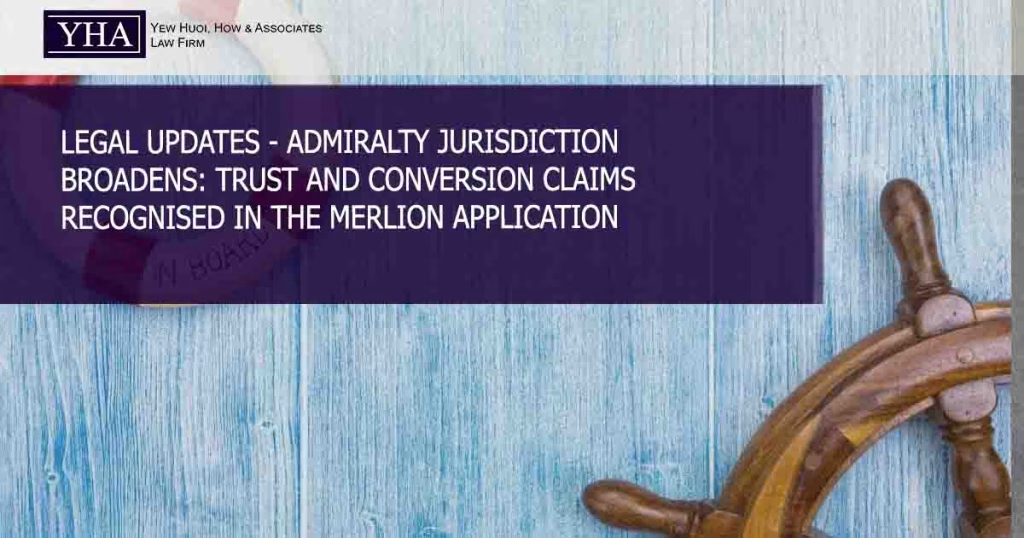1. Summary and Facts
In Burrows v The Ship “Merlion” [2025] 2 Lloyd’s Rep 281, the Federal Court of Australia examined the scope of Admiralty jurisdiction under sections 4(2)(a) and 16 of the Australian Admiralty Act 1988 (Cth), in a case concerning competing claims to the ownership and possession of the yacht Merlion.
The plaintiff, Mr Terence Burrows (“TB”), owned Merlion and had agreed to trade it in as part-payment for a new vessel to be built by Pacific Motor Yachts Pty Ltd (“PMY”). After taking possession of Merlion, PMY went into liquidation. Its director, Mr Brett Thurley, purported to transfer ownership to Mr Glenn Thurlow (“GT”), who moored the yacht at his private jetty.
Believing he remained the true owner, TB commenced in rem proceedings, arrested the vessel, and sought declarations, injunctions, and damages. He alleged that Merlion was held on trust for him, that GT had knowingly received trust property, and that GT had committed conversion and detinue. TB also claimed misleading or deceptive conduct under the Australian Consumer Law (“ACL”). GT challenged the Court’s jurisdiction, arguing the claims were not proprietary maritime claims under s 4(2)(a) of the Admiralty Act 1988 and applied to have them struck out and summarily dismissed, asserting that TB’s pleadings improperly combined in rem and in personam actions.
2. Legal Issues
• Whether TB’s claims were properly characterized as proprietary maritime claims within the meaning of Section 4(2)(a) of the Admiralty Act 1988.
• Whether the Federal Court had admiralty jurisdiction.
• Whether the arrest of Merlion was lawfully effective.
3. Court’s Findings
• The Court ruled that TB’s claims did fall within Admiralty jurisdiction, except for the ACL claim and certain procedural requests.
• The ACL claim did not fall within s 4(2)(a) because it did not concern ownership, possession, or title to a vessel.
• The Court also struck out TB’s request that the Admiralty Marshal “deliver possession” of Merlion to him, holding that the Marshal merely holds the vessel as an officer of the Court and cannot transfer possession except through orders enforcing judgment.
• The remaining claims—trust, conversion, detinue, and proprietary maritime claims—were validly brought in rem and fell squarely within the Admiralty Act.
• Therefore, the arrest of Merlion was lawfully effective, and the proceedings were allowed to continue.
4. Practical Implications
• Claims involving ownership, title, or possession disputes over vessels fall squarely within proprietary maritime claims under s 4(2)(a) of the Admiralty Act.
• Admiralty arrest remains available even in complex trust or misappropriation scenarios arising before or after liquidation of a vessel-related company.
• Plaintiffs must plead carefully—ACL or general commercial claims cannot be mixed into in rem proceedings unless they independently fall within Admiralty jurisdiction.
• The Admiralty Marshal’s role is custodial only; possession cannot be transferred by request, only by judgment.

